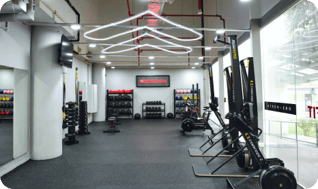Have you ever looked at people playing sports and thought, "I wish I could do that, but I wouldn't know where to start?"
You're not alone. The good news? With the right guidance from a physiotherapist, you can make that journey safely and successfully. Let's explore how you can transform from someone who doesn't exercise to someone who confidently participates in recreational sports.
Why Start With a Physiotherapist?
Think of a physiotherapist as your personal movement coach and injury prevention expert. They're not only rehabilitation specialists - they're also perfectly equipped to help you start your sporting journey on the right foot.
Getting to Know Where You're Starting From
Before you jump into any sport, your physiotherapist will assess your current abilities and limitations. They'll look at:
- How well you can move
- How much weight you can lift and carry
- Your balance and coordination skills
- Any previous injuries or health conditions you may have
This assessment isn't about judging where you are - it's about creating your personalised roadmap (what physiotherapists call a "plan of care") to get you where you want to be.
Your physiotherapist will also want to know about other health professionals involved in your journey. For example, you might have:
- A sports coach teaching you specific skills
- A GP managing your health conditions
- A nutritionist helping with your diet
Building Your Foundation
Learning Movement Basics
Just like you wouldn't start driving without learning the basics, you shouldn't jump straight into sports without mastering fundamental movements. Your physiotherapist will teach you:
- How to squat and bend (what we call 'hinging') properly
- How to lunge safely and effectively
- How to push and pull (movements essential for almost every sport)
- How to move your body efficiently in different directions
Every sport places different demands on your body. Your physiotherapist will analyse these demands (what we call a "movement analysis") and create exercises that match what you'll need to do in your chosen sport.
Starting Strength Training

Strength training might sound intimidating, but don't worry - you won't be lifting heavy weights straight away. Your physiotherapist will start with a beginner-friendly programme that matches your current abilities. This might include:
- Modified push-ups against a wall
- Squatting to a chair (what we call 'box squats')
- Simple core exercises like bridges
- Supported single-leg standing for balance
As you get stronger, you'll gradually progress to more challenging exercises. The key word here is 'gradually' - we're building a strong foundation, not racing to the finish line!
Making Your Body Sport-Ready
Improving Your Movement Range
Being flexible doesn't mean you need to become a gymnast. It's about having enough movement range to play your chosen sport safely. Your physiotherapist will help you:
- Learn the difference between warm-up stretches (moving stretches, like leg swings) and cool-down stretches (held stretches)
- Identify which parts of your body need more flexibility
- Learn proper stretching techniques (there's more to it than just reaching and holding!)
Building Your Fitness Level
Getting fit doesn't mean running marathons from day one. Your physiotherapist will help you build your fitness gradually, starting with activities that match your current level. This might mean:
- Starting with brisk walking
- Progressing to alternating walking and jogging
- Eventually building up to sport-specific fitness activities
Getting Sport-Specific
Once you've built your foundation, it's time to focus on your chosen sport. Your physiotherapist will:
- Break down the specific movements and requirements needed for your sport
- Help you practice these movements safely
- Teach you how to avoid common injuries in your sport
Staying Safe While Playing

Professional sports teams have invested heavily in preventing injuries to their players. Your physiotherapist will share proven strategies to help you stay injury-free, including:
- Using sport-specific warm-up routines
- Share tell-tale signs that your body needs rest
- Key exercises that research has shown to help prevent common sports injuries
Managing Your Journey
Setting Realistic Expectations
Let's be honest - going from no exercise to playing sports is a journey. Your physiotherapist will help you:
- Set achievable goals
- Track your progress
- Stay motivated when things feel challenging
Making It Last
The ultimate goal isn't just to get you playing sports - it's to help you maintain an active lifestyle Your physiotherapist will:
- Teach you how to understand your body's signals
- Help you develop injury-prevention habits
- Show you how to adjust your routine as you improve
Remember...
Everyone's journey is different, and that's perfectly fine. Some people might progress faster than others, but what matters is that you're moving forward safely and confidently. With a physiotherapist's guidance, you can transform from someone who doesn't exercise to someone who regularly enjoys sports, all while minimising the risk of injury.
Ready to start your journey? The first step is simply booking that initial appointment with a physiotherapist. They're there to help you succeed, and with their expertise, you'll be amazed at what you can achieve.


.png?width=301&height=187&name=Website%20Navigation%20Images%20(3).png)

-1.jpg?width=1984&height=1196&name=UFIT%20Club%20Street%20Front%20(4)-1.jpg)






